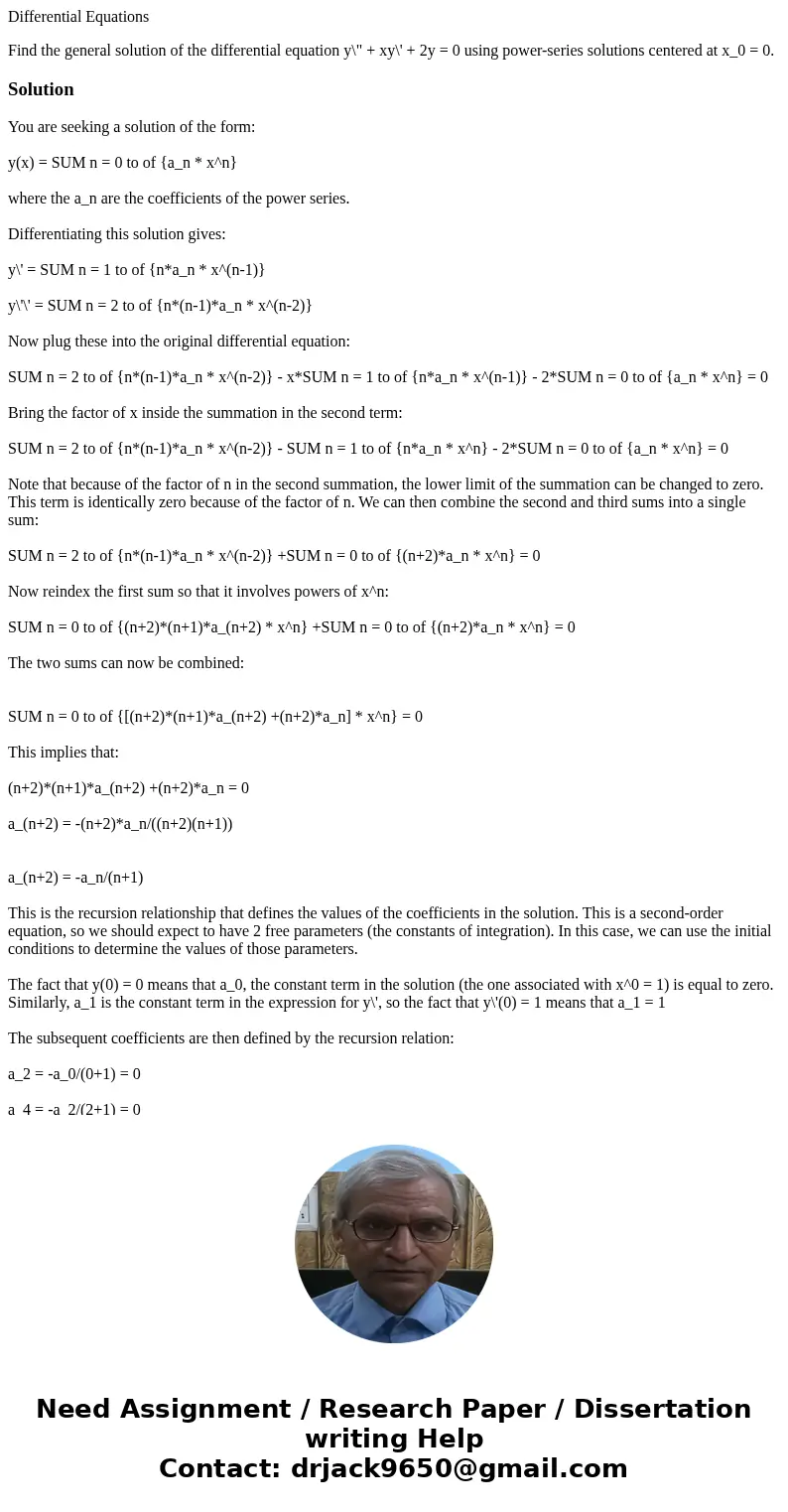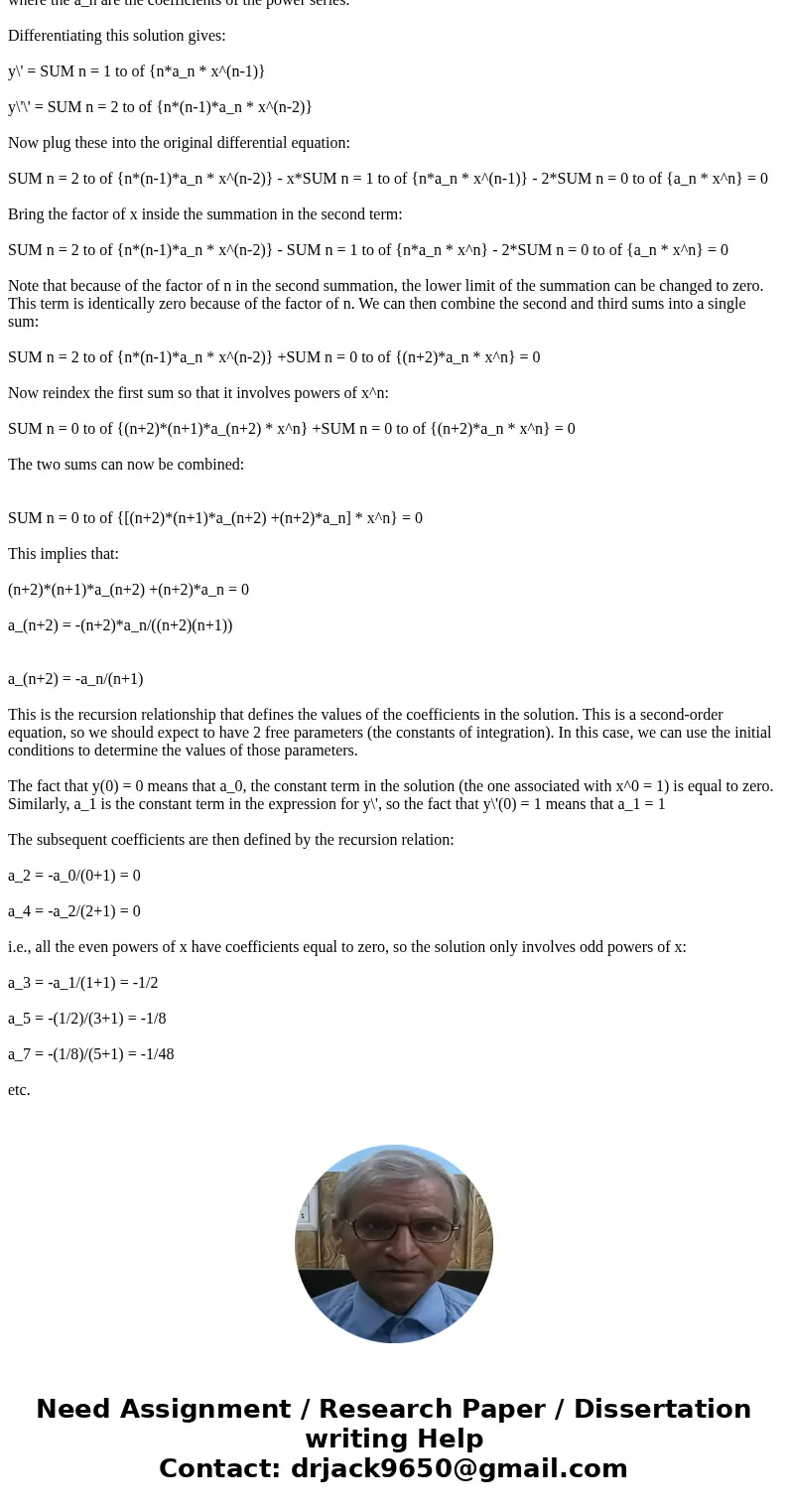Differential Equations Find the general solution of the diff
Differential Equations
Find the general solution of the differential equation y\" + xy\' + 2y = 0 using power-series solutions centered at x_0 = 0.Solution
You are seeking a solution of the form:
y(x) = SUM n = 0 to of {a_n * x^n}
where the a_n are the coefficients of the power series.
Differentiating this solution gives:
y\' = SUM n = 1 to of {n*a_n * x^(n-1)}
y\'\' = SUM n = 2 to of {n*(n-1)*a_n * x^(n-2)}
Now plug these into the original differential equation:
SUM n = 2 to of {n*(n-1)*a_n * x^(n-2)} - x*SUM n = 1 to of {n*a_n * x^(n-1)} - 2*SUM n = 0 to of {a_n * x^n} = 0
Bring the factor of x inside the summation in the second term:
SUM n = 2 to of {n*(n-1)*a_n * x^(n-2)} - SUM n = 1 to of {n*a_n * x^n} - 2*SUM n = 0 to of {a_n * x^n} = 0
Note that because of the factor of n in the second summation, the lower limit of the summation can be changed to zero. This term is identically zero because of the factor of n. We can then combine the second and third sums into a single sum:
SUM n = 2 to of {n*(n-1)*a_n * x^(n-2)} +SUM n = 0 to of {(n+2)*a_n * x^n} = 0
Now reindex the first sum so that it involves powers of x^n:
SUM n = 0 to of {(n+2)*(n+1)*a_(n+2) * x^n} +SUM n = 0 to of {(n+2)*a_n * x^n} = 0
The two sums can now be combined:
SUM n = 0 to of {[(n+2)*(n+1)*a_(n+2) +(n+2)*a_n] * x^n} = 0
This implies that:
(n+2)*(n+1)*a_(n+2) +(n+2)*a_n = 0
a_(n+2) = -(n+2)*a_n/((n+2)(n+1))
a_(n+2) = -a_n/(n+1)
This is the recursion relationship that defines the values of the coefficients in the solution. This is a second-order equation, so we should expect to have 2 free parameters (the constants of integration). In this case, we can use the initial conditions to determine the values of those parameters.
The fact that y(0) = 0 means that a_0, the constant term in the solution (the one associated with x^0 = 1) is equal to zero. Similarly, a_1 is the constant term in the expression for y\', so the fact that y\'(0) = 1 means that a_1 = 1
The subsequent coefficients are then defined by the recursion relation:
a_2 = -a_0/(0+1) = 0
a_4 = -a_2/(2+1) = 0
i.e., all the even powers of x have coefficients equal to zero, so the solution only involves odd powers of x:
a_3 = -a_1/(1+1) = -1/2
a_5 = -(1/2)/(3+1) = -1/8
a_7 = -(1/8)/(5+1) = -1/48
etc.


 Homework Sourse
Homework Sourse